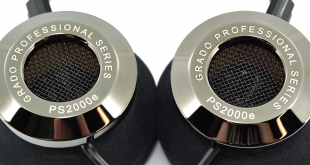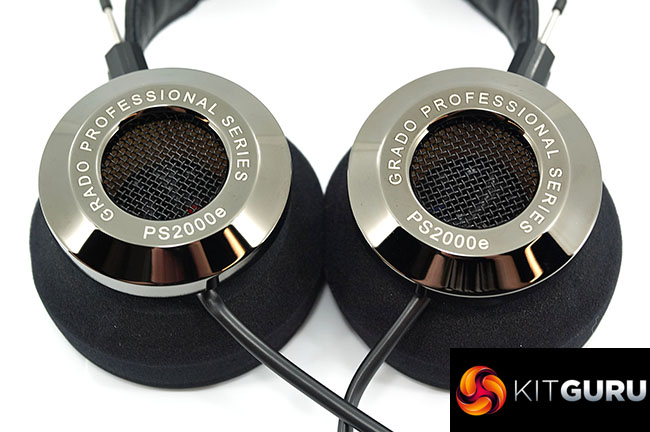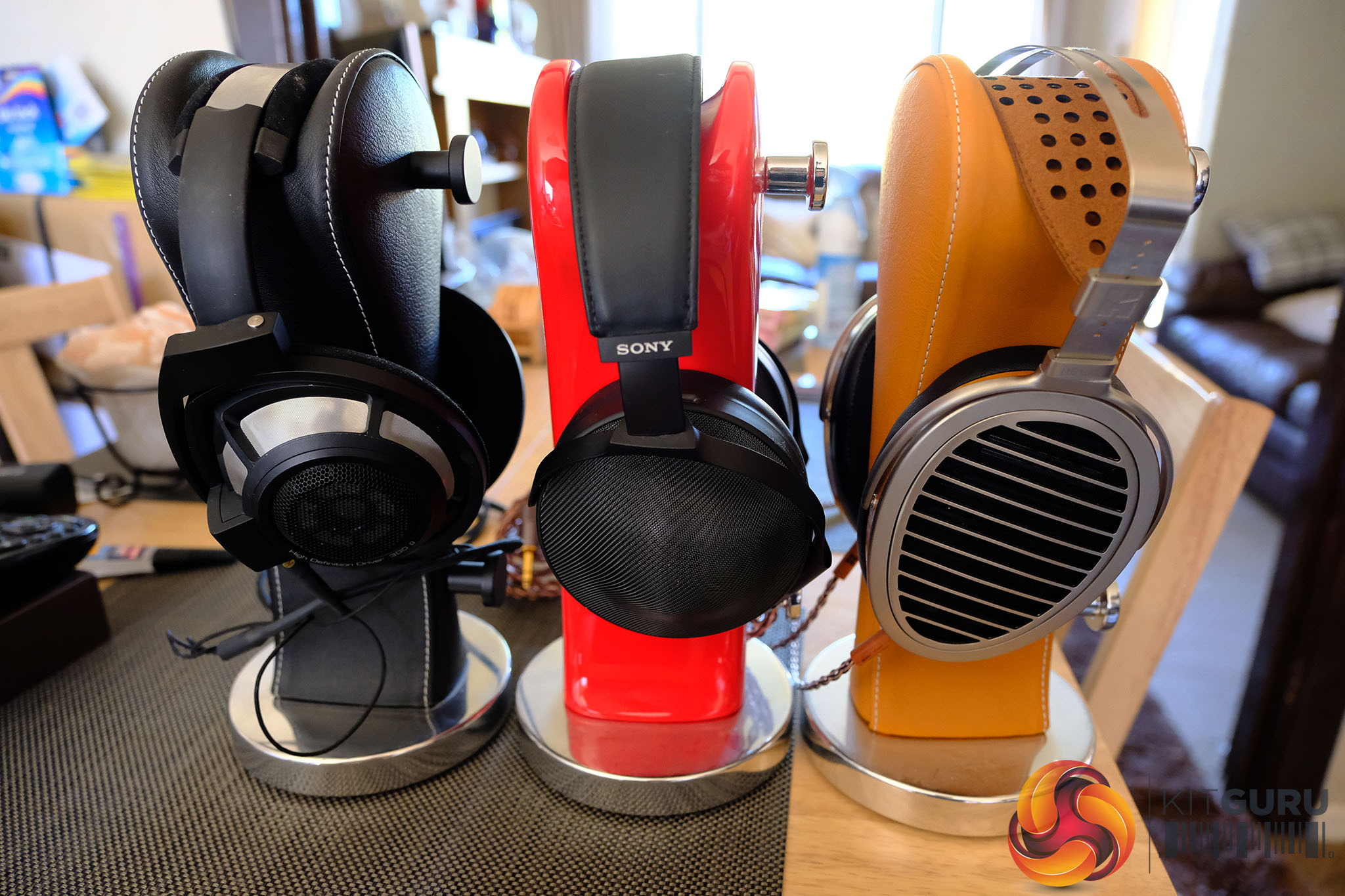
I have reviewed many Grado headphones over the years, and today I look at the companies 2017 flagship model – their first in over a decade with two years of development behind it. They claim the PS2000e headphone incorporates a brand new proprietary driver design to enhance the overall experience – so it is an exciting time for Grado.
Unfortunately headphone prices seem to be rising in recent years and the PS2000e are no exception – they hit the UK market at a staggering £2,700 retail. Interestingly, the previous Grado PS1000e flagship is £1,700 — or £1000 less.

For a relatively small Brooklyn based family company Grado have a huge global following, Over the years they have released some simply wonderful, thoroughly enjoyable to listen to headphones. I recently reviewed the limited edition GH2 Heritage Edition headphones and I loved the refined sound signature. I can't honestly say I have always been a big fan of John's designs when he took over the company in 1990 – certainly not in the same way I enjoyed his uncle Joe's creations before. That said, the GH2 made me re-evaluate their current direction, particularly their use of different wood types around the drivers. It really does make a difference.
The PS1000 flagship was a great headphone, but I noticed a bizarre variance between 3 or 4 headphones I listened to over the years at various meets- none of them sounded exactly the same. The PS1000e was a better built headphone – slightly less treble accentuated and much more suited to my own personal hearing. When the PS2000e landed with me a few weeks ago, I felt rather fortunate to be one of the first people in the UK to get my hands on them. What exactly have they changed? Well before I get into that, a little background history first.
Eight or so years ago I was involved in a rather serious motorbike accident and one of the many tests they made me take was to check my hearing wasn’t badly affected by the considerable impact against a car – they do this test on a fairly regular basis, even today. My audio response rates basically at the upper end of the spectrum – a reassuring fact to know, especially as many other parts of my body weren’t quite so lucky.
I only mention this – not to boast that my hearing is great, but to give a little perspective to audio reviews you may read online. When KitGuru tests much of the hardware we get to review – there are quantifiable benchmark figures we can present. Frames per second, the watts demand under load, temperature curves and clock speeds. Its not quite so scientific when we test audio gear.
Much of the enjoyment taken with listening to music is based on many (non scientific) factors – do you like very pronounced high frequencies to extract every little bit of micro detail? Do you prefer a sweet mid range to enjoy those sultry female vocals? It is worth pointing out that the quality of your hearing also plays a significant factor.
If your hearing has lost a little of the frequency range response (and its likely to happen the older you get) then a headphone deemed as ‘bright‘ could actually work out better for you. One of my friends is firmly what I would call a ‘bass head’ – so any headphone he wants to wear has to rock his teeth out, otherwise he would simply say ‘Total crap’. That is about as unscientific as you can get.
Personally, I tend to favour a fairly neutral curve without any specific frequency range dominating the experience. I do love the Stax 009 headphones, but not for specific genres. They extract great detail from many of my classical recordings, but they are not ideal when you want to enjoy classic rock. The Abyss 1266, Grado HP1 and Audeze LCD4 tend to excel in that particular category, each having their own distinctive sound signature.
Many headphones (and amplifiers/cables) do add their own sound characteristic to the mix, but I would prefer to err on the warm side of neutral, if given a choice.

While I could discuss many headphones today, the three that win most of my head time are the (right) Hi-Fi Man HE1000 (Rev. 2 with Kimber Cable), (left) Sennheiser HD800S (with Cardas Cable) and the Sony MDR-Z1R. I had planned to review the HE1000 Rev 2 at the time of launch, but I got rather ill at the time and ended up forced into surgery, so I sadly consider this a missed opportunity for KitGuru.
For those interested, I did cover other headphones and configurations in previous articles which you can see HERE, HERE and HERE. I will be making some changes as those articles are now a little out of date, but all in due time.
Grado PS2000e Headphones Audio Specs:
Transducer Type: Dynamic
Operating Principle: Open Air
Frequency Response: 5 – 50,000 hz
SPL 1mW: 99.8 dB
Nominal Impedance: 32 ohms
Driver Matched dB: .05 dB
Included Accessories:
Headphones, Warranty, Grado story-sheet, 3.5mm mini adapter, extension cable. A 4-pin XLR balance cable option is available.
Review photography handled in house at KitGuru with a Leica S series medium format camera and S series prime lens. Please do not use any of the images within this review without express permission.
 KitGuru KitGuru.net – Tech News | Hardware News | Hardware Reviews | IOS | Mobile | Gaming | Graphics Cards
KitGuru KitGuru.net – Tech News | Hardware News | Hardware Reviews | IOS | Mobile | Gaming | Graphics Cards



holy crap! I own their £80 pair. insaneballs
Wow thats hard core. Im crawling back into the corner with my sennheiser hd700s
I would love to win these and review them :)) I could only imagine how Crystal clear they are 🙂 please let me have them as the giveaway :)) I will do Kit Guru proud I promise.
ooh wow
I love how people from facebook just come over here and say ‘LET ME HAVE THEM!’ and don’t even read, (or probably understand) the review. Its a greedy greedy world we live in.
Very nice. I have two high-end DACs I would love to test them on. Those ‘cons’ don’t seem to be too much of a con, assuming a high-end DAC would take care of the line noise (with a good cabling setup).